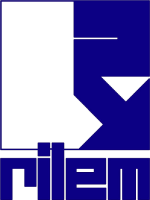Publications
Pro080
Influence of aggregate’s nature on their instability at elevated temperature
Title: Influence of aggregate’s nature on their instability at elevated temperature
Author(s): Z. Xing, R. Hébert, A.-L. Beaucour, B. Ledésert, A. Noumowé, Nancy Linder
Paper category : conference
Book title: 2nd International RILEM Workshop on Concrete Spalling due to Fire Exposure
Editor(s): E.A.B. Koenders and F. Dehn
ISBN: 978-2-35158-118-6
e-ISBN: 978-2-35158-119-3
Publisher: RILEM Publications SARL
Publication year: 2011
Pages: 149 - 156
Total Pages: 8
Nb references: 11
Language: English
Abstract: The nature of aggregates has an important influence on the behaviour of concrete at high temperature. Up to now, the aggregates used in concrete are classified in two categories:
siliceous and calcareous. Most publications and the Eurocode 2-1-2 underline the best thermal resistance of concrete with calcareous aggregate in comparison to concrete with siliceous aggregate. However, recent studies show that rocks of identical chemical nature can have different behaviour during the temperature rise. Therefore, there is a need to improve the understanding of the thermal damage process of aggregates.
An experimental study performed on three aggregates such as limestone, flint and quartzite that underwent heating-cooling cycles at 150°C, 300°C, 450°C, 600°C and 750°C is discussed in this paper. Though they are both siliceous, the flint shows a spalling phenomenon from 300°C up to 600°C while quartzite has a good thermal resistance. Calcareous aggregate presents also an instability due to decarbonation/hydration after the heating/cooling cycle at 750°C.
The physico-chemical, mineralogical and microstructural evolutions of these aggregates with temperature were analysed to better understand the instability process. The evolution of flint damage is especially described by a series of observations of cracking from macroscopic to nanoscopic scale through microscopic scale.
Online publication: 2012-01-17
Publication type : full_text
Public price (Euros): 0.00
>> You must be connected to view the paper. You can register for free if you are not a member


